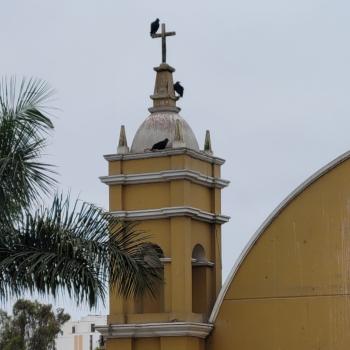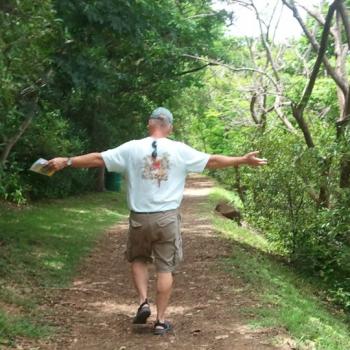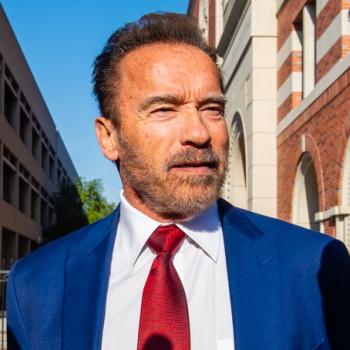Lectionary Reflections
Acts 2:1-21
May 12, 2013
The church has made much of Pentecost over the years, giving choirs and congregations ample opportunities to celebrate, usually quite loudly, what is often called the birthday of the church. Well, in actual fact it is not the birthday of the church. That happened already, certainly with the resurrection of Jesus, and perhaps even earlier with his call of the first disciples by the sea. Still, the point is well taken; at this first-century Feast of Weeks, the Jews both living in Jerusalem as sojourners (Acts 2:5) and those visiting from other lands (Acts 2:11) hear in their own first languages "the great deeds of God" (Acts 2:11). And thus the living growth of Christian mission and the inauguration of the Christian community worldwide have their start. Jews are first given this new Gospel of Jesus Messiah, and later in Acts, Peter and Paul will extend the mission to the Gentiles, too.
Unfortunately, the modern church has too often missed the boat on the real significance of this portion of Luke's second volume. When I was an associate pastor of a large church in Louisiana in the mid 1970s, there were a significant number of United Methodist Christians, some in my own congregation, who practiced speaking in tongues as a sign of religious power. They pointed to Paul's discussion of this phenomenon in his first letter to Corinth and to Acts 2 as the foundation for their practice, and in some cases for their demand that all Christians pursue this gift as a sign of their deeper spirituality. In some cases these Christians became stronger and more faithful church members as a result of the practice, but in other cases glossolalia ("speaking in tongues" or ecstatic speech) became terribly divisive, suggesting that those who possessed and used the gift were somehow superior to those who not only did not, but who were, in fact, scornful and derisive of those who did.
During my ordination interview in 1976, I was asked one question: "How do you understand the practice of speaking in tongues, and what do you think we Methodists ought to do about it?" I had studied this question carefully and had spoken about it in my church and in several other churches. I answered the question as well as I could, but it took about thirty minutes to do so. Such questions are more than worthy of careful exposition! When I concluded, one of the members of the Board of the Ministry (the group that determines who is ordained and who is not) whispered rather audibly, "Sure talks a lot, doesn't he?" The chair of the board politely asked, "Do you have that written down anywhere?" I suppose that meant he liked my response. And, they agreed to ordain me to the ministry.
In the nearly forty years since that conversation, I remain convinced that Acts 2 is not about glossolalia. At least it is not about the action of magical ecstatic speech. Luke is far less interested in the dramatic appearance of tongues and the rushing sound of wind than he is in what those who witness all that actually do in response. In short, it is what happens as a result of the intrusion of the Spirit, not the particulars of how the Spirit shows up, as interesting as all that might be, and as interesting as churches have found the drama of it all in the ensuing years.
The problem is not unlike the experience that Elijah has on Mt. Carmel in 1 Kings 19. The desperate prophet rushes headlong toward the sacred mountain of God in the attempt to escape the clutches of an enraged Jezebel who, upon witnessing the slaughter by Elijah of 450 of her best prophets, has vowed to murder the murderer as soon as she can get her hands on him. Elijah hides in a cave on the mountain, and suddenly pyrotechnics begin with an earthquake, followed by a wind, and culminating in a fire. Yet, each time the reader of the story is told that "YHWH was not in" any of these natural phenomena. Then follows "a profound silence" (the NRSV has finally translated correctly the famously incorrect "still small voice" as "a sound of sheer silence") after which the prophet repeats word for word precisely what he said upon first encountering his God, even before all the dramatic natural events occur and even after the profound silence wraps the mountain in a deep hush. In short, the prophet is an astonishingly slow learner!
You often do not find God in all that large stuff. And besides, all that large stuff is not the point anyway. When God asks Elijah twice, "What are you doing here, Elijah?" what God would like the prophet to explain is why he is not doing the work for which God sent him, namely prophesying!
And so it is in Acts. Luke wants us not to focus our attention on the sounds of the wind or the tongues of fire, as interesting as they might surely be. He signals his warning to us readers by twice using the words "as" and "like" to suggest that what he says about these phenomena cannot be precise: the sound from heaven is only "like" a strong wind blowing. How exactly is a sound like a blowing wind? One is not able to illustrate such imagery so easily, however often the church has tried to do so. The tongues that appear are "as of" fire, they are not in fact tongues of fire, however often Christian art has depicted them so. Verses 2 and 3 are given over to these vague pictures of what is going on in that house. But verses 4-13 are given over to what Luke really wants us to witness. Jews from all over the world are now hearing with amazing clarity "the great deeds of God," those deeds that Peter will elaborate to them in more detail in the remainder of the chapter.





